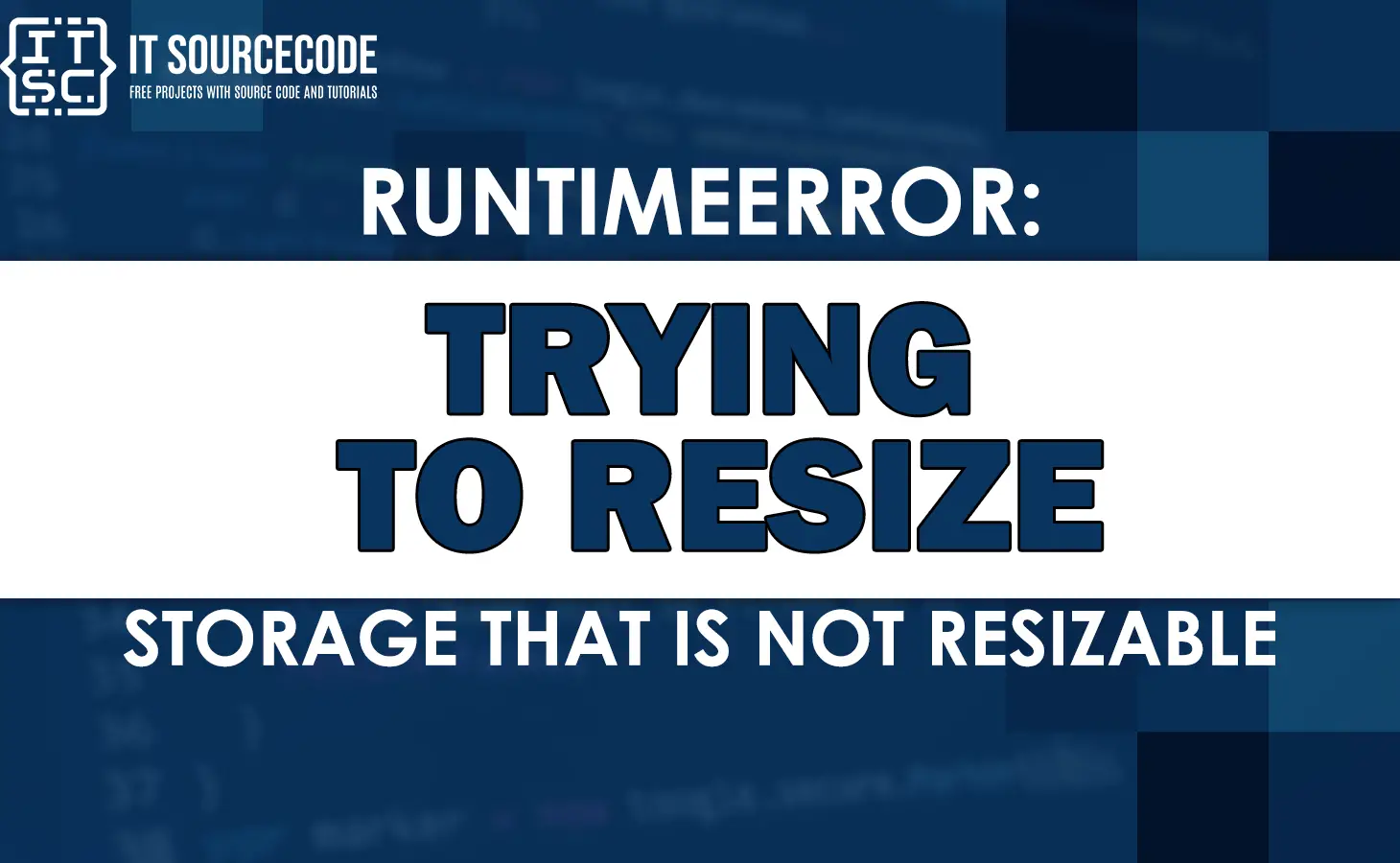Have you ever encountered a runtimeerror: trying to resize storage that is not resizable? This type of error message can be opposing.
Specifically, when you are not familiar with its cause and how to resolved it.
In this article, we’ll discuss what this error message means, why it occurs, and how to solve it.
Also, we will answer some frequently asked questions about this error message and provide tips to help you prevent it.
What Does the “trying to resize storage that is not resizable” Error Message Mean?
The trying to resize storage that is not resizable error means that you’re attempting to resize a storage which is not support resizing.
For example:
If you’re trying to resize an array that you declared with a fixed size, or you may be trying to resize a string that doesn’t support resizing.
How to Reproduce an Error?
Here is the example code on how to reproduce an error:
import torch
# create a tensor with fixed size
tensor = torch.zeros((3, 3))
# try to resize the tensor
tensor.resize_((2, 2))Output:
Runtimeerror: trying to resize storage that is not resizable
Why does this error occur?
This runtimeerror trying to resize storage that is not resizable error occurs because the program attempt to resize an object that is not resizable.
Causes of the Error:
There are multiple reasons why you may encounter this error message. Let’s take a look at some of the most common causes.
- Attempting to resize an array with a fixed size.
- Attempting to resize a string which is not support resizing.
- Attempting to resize a data structure that does not support resizing.
How to solve the trying to resize storage that is not resizable error?
Here are the solutions to solve the runtimeerror: trying to resize storage that is not resizable error.
Solution 1: Use a Dynamic Data Structure Instead of an Array with a Fixed Size
If you are attempting to resize an array that you declared with a fixed size, we will scrutinize using a dynamic data structure instead.
For example:
# Initializing an empty list
my_list = []
# Adding elements to the list dynamically
my_list.append(1)
my_list.append(2)
my_list.append(3)
# Printing the list
print("My List:", my_list)
# Adding more elements to the list dynamically
my_list.append(4)
my_list.append(5)
# Printing the updated list
print("Updated List:", my_list)
In this example, we use a Python list, which is a dynamic data structure, to store elements instead of an array with a fixed size.
Output:
My List: [1, 2, 3]
Updated List: [1, 2, 3, 4, 5]
Solution 2: Use a Mutable String or a StringBuilder
To solve this error, we will use a mutable string or a StringBuilder. These data structures allow you to change the string’s contents without having to create a new string object.
# Using a mutable string to modify a string
s = "Welcome to the tutorial for runtimerror"
s_list = list(s) # Convert the string to a list of characters
s_list[0] = 'H' # Change the first character to uppercase
s_modified = ''.join(s_list) # Convert the list back to a string
print(s_modified) This is an example code in Python that demonstrates the use of a mutable string (list of characters) to modify a string without creating a new object.
Output:
Helcome to the tutorial for runtimerror
Solution 3: Use a List Comprehension
Another solution to solve this error is to use list comprehension to create a new list with the desired size.
my_list = [1, 2, 3]
new_list = [0]
new_list[:len(my_list)] = my_list
print(my_list)In this example code, this creates a new list with the desired size and fills it with zeros. The original list is then copied over to the new list using slice notation.
Solution 4: Use the NumPy Library
The other way to fix this error is to use the NumPy library instead. NumPy provides a wide range of array operations, including resizing.
Example code:
import numpy as np
# create a 2D array
arr = np.array([[1, 2, 3], [4, 5, 6]])
# print the original array
print("Original Array:")
print(arr)
# resize the array
resized_arr = np.resize(arr, (3, 4))
# print the resized array
print("Resized Array:")
print(resized_arr)Output:
Original Array:
[[1 2 3]
[4 5 6]]
Resized Array:
[[1 2 3 4]
[5 6 1 2]
[3 4 5 6]]
Additional Resources
The following additional resources can help you to understand more about runtimeerror:
Conclusion
In conclusion, we discussed what this error means, how to reproduce an error, and the causes and also provide frequently ask questions.
Also, we’ve provided an example for every solution that you will be able to understand quickly.
We hope that the above solutions can help you to solve the Runtimeerror: trying to resize storage that is not resizable.
FAQs
If a string is immutable, it means that its contents cannot be changed. When you want to change a string, you have to make a new string object.
No, not all data structures can be resized. Some data structures, such as stacks and queues, are designed to have a fixed size.
Yes, NumPy arrays support resizing. You can use the resize() method to resize a NumPy array.

